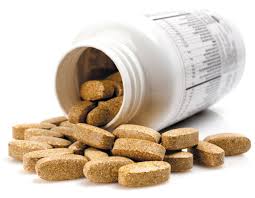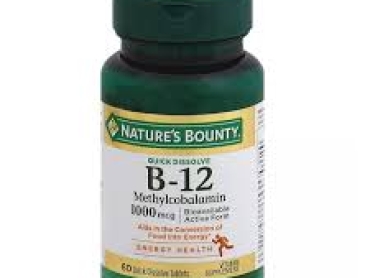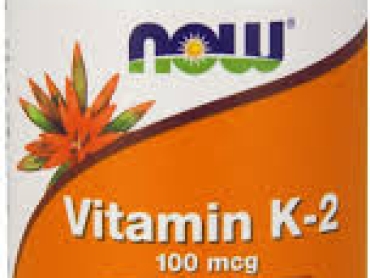Vitamin B3 Pills Niacin Overview
What is vitamin B3 and what does it do?
Vitamin B3 – also known as niacin – is one of the eight essential B vitamins. Vitamin B3 Pills Niacin helps to release energy from the food we eat, supports normal nervous system function, fights fatigue and also helps keep skin healthy.
Niacin is water-soluble, so we need to find it in our daily diet. Our bodies do make a small amount of niacin, but we get most of it from our food. B3 is found in:
- red meat
- chicken
- oily fish
- eggs
- milk and dairy products
- bread
- fortified breakfast cereals
A niacin deficiency is rare in the UK, but a severe lack of vitamin B3 can lead to a condition called pellagra. Symptoms include dry, itchy skin (dermatitis) and diarrhoea.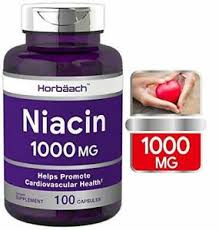
Function of niacin
What does Vitamin B3 Pills Niacin do in the body?
Like all the B vitamins, niacin helps to break down fats and protein, converting our food into energy. It helps keep the skin and nervous system healthy, and contributes to normal psychological function, too. Niacin also plays a role in reducing tiredness and fatigue.
There are two main forms of niacin: nicotinic acid and niacinamide (or nicotinamide). Nicotinic acid has been shown to help reduce LDL or ‘bad’ cholesterol and increase levels of HDL or ‘good’ cholesterol.
How much niacin do I need?
The reference nutrient intake (RNI) for vitamin B3 is:
- 2mg a day for women
- 5mg a day for men
Our body can make small amounts of niacin from the amino acid tryptophan,10 but you still need to get enough from your diet every day.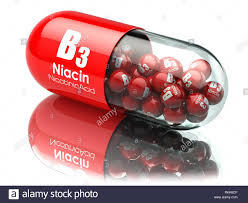
Do children need Vitamin B3 Pills Niacin?
- Age 1 – boys; 5mg, girls; 4.7mg a day
- 2-3 – boys; 7.2mg, girls; 6.6mg a day
- 4-6 – boys; 9.8mg, girls; 9.1mg a day
- 7-10 – boys; 12mg, girls; 11.2mg a day
- 11-18 – boys; 16.5mg, girls; 13.2mg a day

Vitamin B3 foods
Which foods are the best sources of niacin?
The richest sources of niacin are animal-based foods but if you’re vegetarian or vegan, you can find all the vitamin B3 you need in a wide variety of plant foods.
The best food sources of niacin include:
- meat, especially red meat and liver
- oily fish, such as mackerel or salmon
- poultry

- eggs
- milk and dairy products
The best plant sources of niacin include:
- wheat and maize flour
- peanuts
- avocado
- potatoes
- fortified food such as cereals or plant milks
Niacin deficiency
What are the symptoms of a niacin deficiency?
A niacin deficiency is very rare in most Western countries, but early symptoms can include: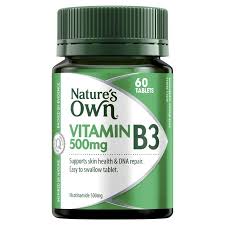
- headache
- memory problems
- dry skin
- nausea
- irritability
If left untreated, a niacin deficiency can develop into pellagra that produces sore or ‘raw’ skin, similar to sunburn. It can also lead to dementia and could even be fatal.
What happens if I consume too much Vitamin B3 Pills Niacin?
It’s not possible to overdose on niacin through your diet, but you can if you take too many supplements, for example taking a multivitamin and a separate B-complex.
Too much nicotinic acid can cause itching or flushing skin, and, over time, may lead to liver damage. There’s not enough research to show what happens if you take too much nicotinamide.
The NHS says taking less than 17mg of nicotinic acid, or less than 500mg of nicotinamide, a day is not likely to cause any harm.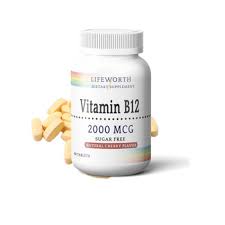
Vitamin B3 Pills Niacin
When should I take a niacin supplement?
If you eat a balanced diet with a wide range of foods, you should get all the niacin you need. Niacin is sometimes prescribed by health professionals to help with high cholesterol, but talk to your GP if you’re interested in taking it.
Should children take Vitamin B3 Pills Niacin?
Children should be able to get all the niacin they need from their daily diet.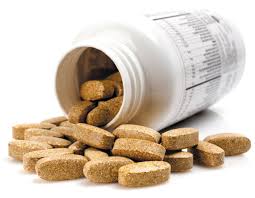
Should women take a niacin supplement during pregnancy?
If you are deficient in vitamin B3 – ask your doctor for a blood test – a niacin supplement may have the potential to help prevent miscarriage or developmental problems. But the NHS doesn’t recommend that pregnant women in general take vitamin B3.
What are the potential benefits of taking Vitamin B3 Pills Niacin
B vitamins have been shown to help brain function, with niacin in particular warding off cognitive decline and the development of Alzheimer’s Disease.
A number of studies have found that certain B vitamins may benefit people with osteoarthritis. It’s not fully understood how, but niacinaminde can improve joint mobility and reduced inflammation in those with OA.